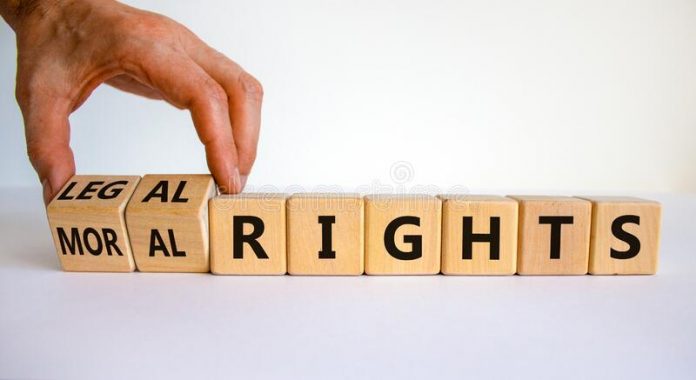 Legal rights and status" width="696" height="380" />
Legal rights and status" width="696" height="380" /> Legal rights and status" width="696" height="380" />
Legal rights and status" width="696" height="380" />
As per Merriam- Webster Dictionary, “Lien” is defined as “a charge/ penalty upon real or personal property towards the satisfaction of some debt or duty derived by the use of law”. In legal terms, lien means rights of bailee to retain the goods & securities (held by bailee) owned by the bailor until the total debt due to him is paid off. It allows the bailee/ creditor the right to retain the security and not the right to sell it. In simple terms, a lien means the right to keep somebody’s property until a debt is paid and not the right to sell it to someone else. A Bailee always has the right to lien against Bailor. This article will provide a quick understanding of Lien and their types, various aspects of Banker’s Right to Lien and the procedure adopted by Banks while set-off of a particular lien.


A lien may be categorised into Particular/ Specific Lien and General Lien.
This is a lien wherein a person, who has made expenses either by rendering any services in the form of labour or skills on a particular item, has a right to retain such goods until the due remuneration is paid to him against the rendered services. This is mentioned under Section 170 of the Indian Contract Act, 1872.
For example, A gives his car to a mechanic for servicing against consideration of Rs. 4500. The mechanic after rendering the due scope of service will be right to keep A’s car in his custody until he is remunerated for his services.
A bailee can exercise his right to a particular lien in scenarios, wherein:
This is a lien wherein any goods bailed can be retained as security (in the absence of a contract) if any amount is due to Bailee. Such rights are assigned and limited to the following category of people.:
It is important to note that persons other than those mentioned above can have the right to a general lien only in case any contract is explicitly made to the effect.
The goods excluded are the documents related to litigation, Contracts, and legal documents. This also includes lockers as the lockers are taken for the safe custody of ornaments and important documents.

It is the legal right of the bank to set off or adjust the debit amount against the credit amount in the balance of the same borrower. The right of set-off is also known as the right to balance debit with credit or a combination of accounts.
For example, X buys a mobile from Y, for Rs.10,000. Later, A sells to B Bluetooth headphones worth Rs.5000. B is perfectly entitled to set off the cost of headphones against his liability for mobile and needs to pay only Rs.5000 as a settlement towards the net debt.
A banker’s lien differs from the right to set off. A lien is confined to only the securities and property upon which banks have custody. A set-off relates to money and may arise from a contract or mercantile usage, or by using the law.
It is a condition that entitles bankers to recover their due amount by selling the goods of debtors, which are in their possession. The recovery can only be made once a reasonable time and notice are provided to the debtor. In other words, a bank has the right to retain the Goods and securities of a customer until the customer pays the bank’s dues. The bank can sell these goods after giving due notice to the customer as per the law.
These goods are the ones that Banker has possessed during the ordinary course.

Lien is not permissible in the following scenarios:
The banker’s power to combine different accounts of a person against the debt it holds against the same person is called the right to set off.
Some important requirements to initiate set-off are
It was held that the right of a banker to keep possession of items delivered to him if and so long as the customer to whom the things belonged or who acquires the power of disposing of them, when so delivered, is indebted to the banker on the balance of the account between them, provided the banker has obtained possession in such circumstances which do not imply that he has agreed to eliminate this right.
It was observed that the bank gets the right of a general lien w.r.t. all securities of a customer including negotiable instruments and Fixed Deposits, but only to the extent to which that customer is liable. In the event that the bank fails to return the balance amount to the customer, and the latter suffers a loss thereby, the bank will be liable to pay associated damages to the customer. In the above case, the Court has relied its decision on the principle which states that for invoking a lien by a bank, there should exist interdependency between the bank and the customer. Detaining the customer’s properties beyond the total liability is unauthorised and would attract damages as a liability on banks.
In this case, the plaintiff’s father had a fixed deposit with the bank and had also executed four hand notes jointly with certain persons, in favour of the bank. Plaintiff’s father died and the fixed deposit account was transferred to the names of the plaintiff on their undertaking of all the liabilities of their father to the bank.
The bank, without the knowledge of the plaintiffs, adjusted the fixed deposit against the dues on the aforesaid hand notes. The plaintiffs filed a suit against the bank claiming the amount of the deposit which had been adjusted as mentioned above. They contended that their father was merely a surety for the other executants of the notes and not a principal debtor. Alternatively, the plaintiffs sought a decree against those executants (or their legal representatives) for different portions of the amount adjusted, if the court held that the adjustment made by the bank was legal. The high court made a clear distinction between a lien and set off in the light of Section 171 of the Indian Contract Act made in this case. It was held that the banks have a right to merge one or more accounts of the same customer, but a bank cannot combine a customer’s personal account with a joint account of the customer and another party.
This case has drawn a distinction between Indian Law and England Law. In India, if a debt is incurred by the members of a partnership, they will be jointly and severally liable. So far as the amounts due to the members of the firm are concerned, the claim will be a joint claim both in England and in India. Consequently, if X and Y, who are the members of a firm sue Z, Z cannot set off a debt due by X alone, whereas if Z sues X & Y, X can set off a debt due by Z. It was held that a partner can claim a set of a debt due from his partnership to a bank against the credit balance on a deposit account in his name with the bank.
The Right to Lien is an instrument that can be used by a banker in the event of any default from the borrower. However, a bank needs to decide the reasoning for enforcement of this right given to them by Law. They need to ensure that only the legitimate amount is retrieved from the borrower’s asset (only when allowed by law) and in line with Sections 170 & 171 of the Indian Contract Act, 1872. A banker should not execute a right of lien when there is an express Contract.
Students of Lawsikho courses regularly produce writing assignments and work on practical exercises as a part of their coursework and develop themselves in real-life practical skills.
LawSikho has created a telegram group for exchanging legal knowledge, referrals, and various opportunities. You can click on this link and join:
Follow us on Instagram and subscribe to our YouTube channel for more amazing legal content.
